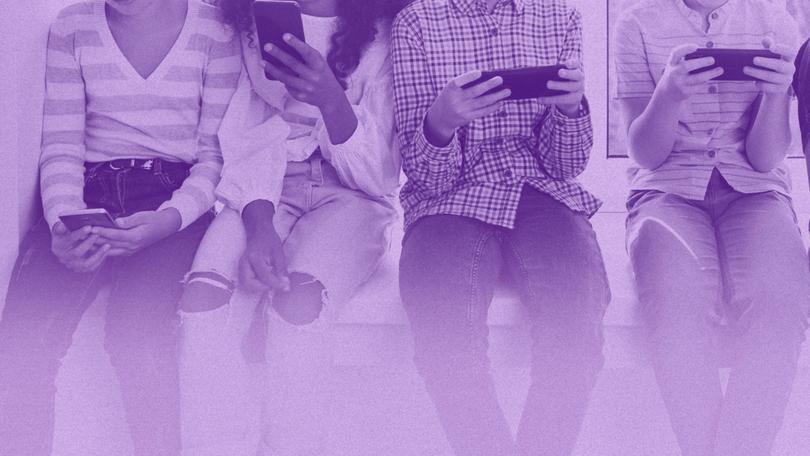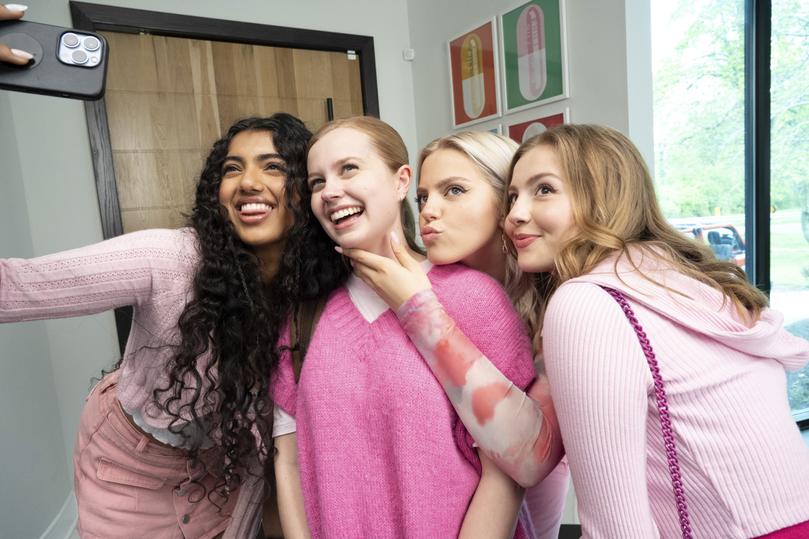KATE EMERY: Why we need to start trusting teenagers not dismissing them as screen-addicted narcissists
KATE EMERY: We need to start trusting teenagers and being kinder to them, not dismissing them as either screen-addicted narcissists who need a participation medal to get out of bed, or hoodlums.

We need to start trusting teenagers and being kinder to them, not dismissing them as either screen-addicted narcissists who need a participation medal to get out of bed or hoodlums in search of a granny to bash.
And we need to do it before the social media ban for under 16s comes into effect.
To explain why, consider a pivotal scene from this year’s Mean Girls remake and the way it has changed since the original film.
Sign up to The Nightly's newsletters.
Get the first look at the digital newspaper, curated daily stories and breaking headlines delivered to your inbox.
By continuing you agree to our Terms and Privacy Policy.In one of the most iconic scenes from the beloved 2004 version, the film’s villain, Regina George, pulls up in a convertible and says to the somewhat dorky heroine: “Get in loser, we’re going shopping.”
In the 2024 remake the line was changed to: “Get in, loser” with no reference to shopping. Why mess with such an eminently quotable line? Because, in the 20 years between films the mall is no longer the go-to destination for teenagers to hang out.

It’s not just shopping malls. If you’re a high-school-aged kid and you’re not at school, the places where you go to hang out — what anthropological types refer to as a “third space” — have changed with the times. Many have disappeared.
Baby Boomers and Gen-Xers speak romantically of afternoons when they got on their bike and their parents’ only concern was that they made it home for dinner.
For Millennials, whose parents were more alert to the perceived risks of kids out on their own, that hang-out destination was more likely to be a mall, the movies, a friend’s house or, as the 2000s beckoned, an internet chatroom.
And, for better and for worse, Zoomers and Generation Alpha found their new hang-out space online with social media: their playground, mall and bedroom all wrapped up in one highly-addictive package.

With the social media ban for under 16s potentially coming into effect this time next year, current day teens are about to lose their hang-out space. Without an attitude adjustment from the rest of us, it may be harder than you think for them to find a new one.
There are lots of reasons for that.
Helicopter parenting means mums and dads are less likely to accept the bang of a flyscreen door and the squeak of bike tyres as an acceptable farewell while their teen disappears to destination unknown.
Sports clubs and other organised activities remain popular but the trend towards having two working parents means families are less likely to be able to ferry their sprog from gymnastics to karate and macrame of an afternoon. More recently, the cost-of-living crisis means dropping hundreds of dollars so a kid can shepherd a ball around an oval once a week is less tenable.
The densification of housing and the rise of apartment living means even the act of having friends over after school isn’t a simple proposition. It’s also led to the loss of green space, where once young people might have congregated.
Research out of England and Wales this week even suggests that some teenagers themselves are afraid to go out because of the violence they are being fed online, which has warped their perception of the world outside their front door so badly it now resembles a Mad Max-Grand Theft Auto hybrid.
Then the COVID-19 pandemic locked a generation of teens inside for two years and got them accustomed to that reality.
And, finally, a reality that we need to confront: the rest of the world is not always tolerant of teenagers.
Think of the Mornington Peninsula McDonalds franchise that shut out an entire school because of the bad behaviour of a few school kids.
Or the regional Victorian shopping centre that tried to ban high-school students without their parents for fear of poor student conduct.
One Perth Hungry Jacks store last year refused to serve anyone under 17 unaccompanied by an adult because of what it said was a spate of violence by teenagers.
Ratbag teens shouldn’t be allowed to wreak havoc but, too often, teens are treated as one homogenous group whereby the innocent suffer along with the guilty.
The looming social media ban is a great reason to tackle anti-teen bias but it shouldn’t be the only one.
The reality is that young people are already lonely, having overtaken the elderly as the loneliest age group in the years since the arrival of Instagram, TikTok and Facebook. Plenty of them want face-to-face connection, they just don’t know where to start.
Teens need places they can exist and hang out and that will require the rest of us to welcome them back into public space with less suspicion and more tolerance.
It may also require helicopter parents to revisit their idea about what “safe” means.
Because safety doesn’t just look like being locked in your house, encased in bubble wrap. It also means being safe to connect with their peers in the real world, offline — where they will soon find themselves, like it or not.
